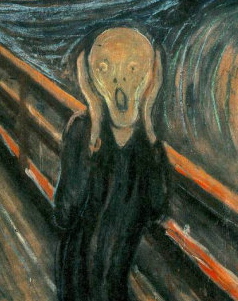neuropath
CH.com Veteran
   Offline
Offline

Same Hit, Different Day
Posts: 218
|
Hi Matt,
A common cold is regularly cited as a trigger event for the onset of an episode or the aggravation of an existing one.
Given that you have seemingly only been using Zomig pills in the past I believe that you need to concern yourself with the fact that you are only employing one single abortive to manage your condition (and with that not the most effective one).
Subject to your existing TMJ condition my advice would be to discuss a suitable preventative treatment with your doctor. This will render Zomig as the secondary abortive it should be, for many here are likely to concur that O2 and not Zomig is the abortive of choice. You may also find that injections or nasal sprays are superior to the pill form, given that they often only start to show effect when the attack is nearing its end.
There is some evidence to suggest that Zomig overuse may (though doesn't have to) cause rebound headaches.
In regards to dosages, several clinical trials seem to support that the 5 mg formula is not more effective than the 2.5 mg one, whereas less people achieved relief from dosages below 2.5 mg.
O2 at 15 lpm or more is likely to abort your attack significantly faster than any Zomig pill, without any of the risks associated with overuse and I suggest that you make this, as well as a suitable preventative medication part of your discussion during your upcoming neurologist appointment.
Below is an excerpt from one of Bob Johnson's previous posts on triptan safety for your reference.
************
Headache. 2004 May;44(5):414-25.Related Articles, Links
Consensus statement: cardiovascular safety profile of triptans (5-HT agonists) in the acute treatment of migraine.
Dodick D, Lipton RB, Martin V, Papademetriou V, Rosamond W, MaassenVanDenBrink A, Loutfi H, Welch KM, Goadsby PJ, Hahn S, Hutchinson S, Matchar D, Silberstein S, Smith TR, Purdy RA, Saiers J; Triptan Cardiovascular Safety Expert Panel.
Department of Neurology, Mayo Clinic Scottsdale, AZ 85259, USA.
BACKGROUND: Health care providers frequently cite concerns about cardiovascular safety of the triptans as a barrier to their use. In 2002, the American Headache Society convened the Triptan Cardiovascular Safety Expert Panel to evaluate the evidence on triptan-associated cardiovascular risk and to formulate consensus recommendations for making informed decisions for their use in patients with migraine. OBJECTIVE: To summarize the evidence reviewed by the Triptan Cardiovascular Safety Expert Panel and their recommendations for the use of triptans in clinical practice. PARTICIPANTS: The Triptan Cardiovascular Safety Expert Panel was composed of a multidisciplinary group of experts in neurology, primary care, cardiology, pharmacology, women's health, and epidemiology. EVIDENCE AND CONSENSUS PROCESS: An exhaustive search of the relevant published literature was reviewed by each panel member in preparation for an open roundtable meeting. Pertinent issues (eg, cardiovascular pharmacology of triptans, epidemiology of cardiovascular disease, cardiovascular risk assessment, migraine) were presented as a prelude to group discussion and formulation of consensus conclusions and recommendations. Follow-up meetings were held by telephone. CONCLUSIONS: (1) Most of the data on triptans are derived from patients without known coronary artery disease. (2) Chest symptoms occurring during use of triptans are generally nonserious and are not explained by ischemia. (3) The incidence of serious cardiovascular events with triptans in both clinical trials and clinical practice appears to be extremely low. (4) The cardiovascular risk-benefit profile of triptans favors their use in the absence of contraindications.
Publication Types:
Consensus Development Conference
Research Support, Non-U.S. Gov't
Review
PMID: 15147249 [PubMed - indexed for MEDLINE]
|

 Home
Home

 Help
Help

 Search
Search

 Login
Login

 Register
Register

 Event Calendar
Event Calendar

 Birthday List
Birthday List





 Pages: 1
Pages: 1

